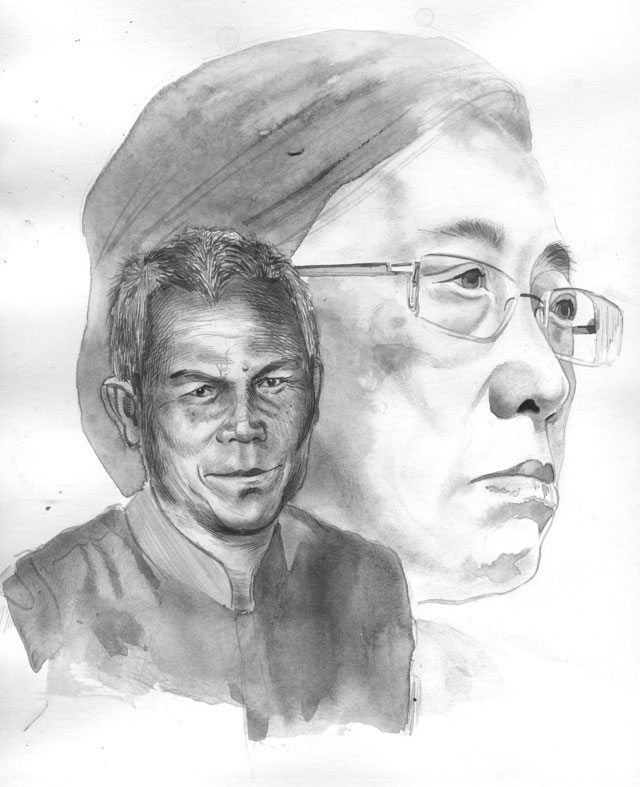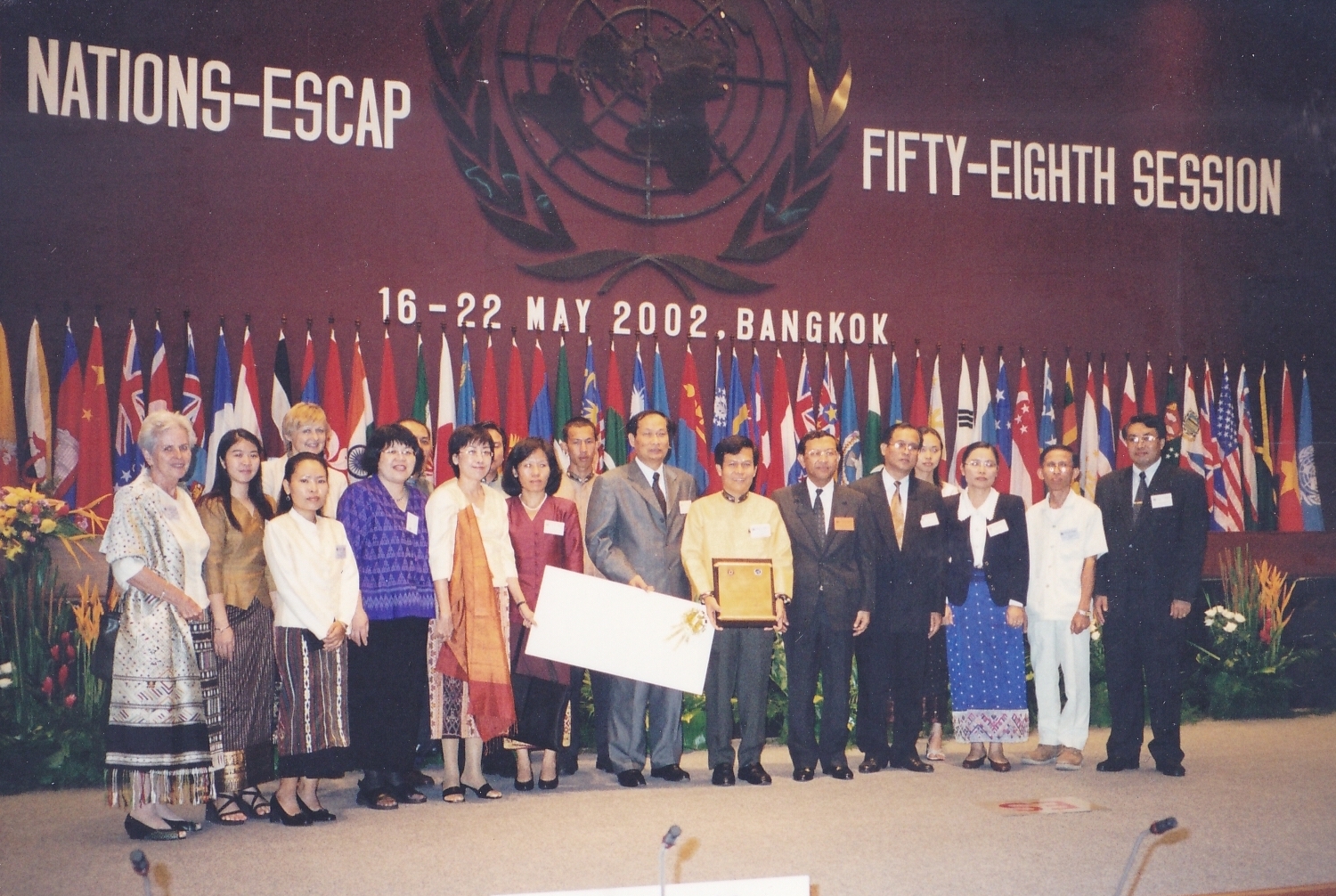The Globe: 18 June 2014
The whereabouts of renowned Lao development worker Sombath Somphone remain unknown and the case has become a cause célèbre. Southeast Asia Globe spoke to his wife, Shui Meng, about the man behind the media attention
By Kearrin Sims Illustration by Victor Blanco
 Often depicted as an activist, Sombath Somphone is a Lao development worker who worked with communities in sustainable agriculture. A much-respected figure in Southeast Asia and beyond, he was awarded the 2005 Ramon Magsaysay Award for Community Leadership. While driving home on 15 December 2012, Sombath was stopped at a police checkpoint and abducted. He has not been seen since.
Often depicted as an activist, Sombath Somphone is a Lao development worker who worked with communities in sustainable agriculture. A much-respected figure in Southeast Asia and beyond, he was awarded the 2005 Ramon Magsaysay Award for Community Leadership. While driving home on 15 December 2012, Sombath was stopped at a police checkpoint and abducted. He has not been seen since.
How did growing up in a rural Lao village shape Sombath?
Sombath’s childhood in the village was not that different from many rural kids in Laos, although as the oldest child he did bear the responsibilities of the family more than his siblings. I think that sense of responsibility, of having to take care of the family, had a major impact on his life. He became very close to his mother and came to appreciate how great the burden of caring for the family is on women in Laos.
Can you tell me about when you and Sombath first met?
We met when we were both students at the University of Hawaii. I went to lots of events about the Indochina wars and I met Sombath at some of those events. But Sombath is a very quiet and reserved person. He doesn’t talk a lot and it took me a while to discover this quiet and serious man who was always sitting at the back of the room.
What aspects of his personality attracted you to him?
Sombath likes to listen to what other people have to say. He doesn’t like to give voice to his own ideas until he has really spent time thinking seriously about them, and when he does say something he says it very concisely. The other characteristic that I began to notice more once we had got to know each other better was how he interacts with other people. He is a very peaceful man who tries to look at things in a holistic way… he always looks at things from multiple perspectives. He is very perceptive, but also very humble. And he is one of the kindest and most generous individuals that I have met.
A lot of the personality traits that you have described share similarities with Buddhist values. Is Sombath a religious man?
He became more interested in Buddhism in the later part of his life. In earlier years, he was influenced more by our Quaker friends and the principles of social justice and non-violence. He looked at Buddhism as a philosophy and a way of life, not so much as a religion. He liked that Buddhism teaches people to find truth for themselves and to not just accept what others tell you, and he valued the Buddhist principles of respect for nature and life.
In the time that you have spent together you must have learned a lot from each other. Is there any one thing that Sombath taught you that stands out?
He taught me to really appreciate the simple things in life. Even though I live in Laos, I am from Singapore… I am an urban girl who grew up in an urban environment and Sombath taught me how to understand the value of the simple life.
Is there anything about Sombath that hasn’t been adequately represented in the numerous articles following his abduction?
I think what’s missing is: ‘Who is Sombath, the man?’ He is really just a simple man with a big heart. Since his disappearance he has sometimes been depicted as something that he is not. For example, many say that he is an activist. Yes, he is very concerned about social issues but if he is an activist about anything, his activism is about how we improve education for the Laotian people. He has never been one to try and tell others what they need to do. He would like people to come up with their own answers and he talked about critical thinking. I feel that this part of him does not come through enough in many of the articles in the media that have been written about him.
